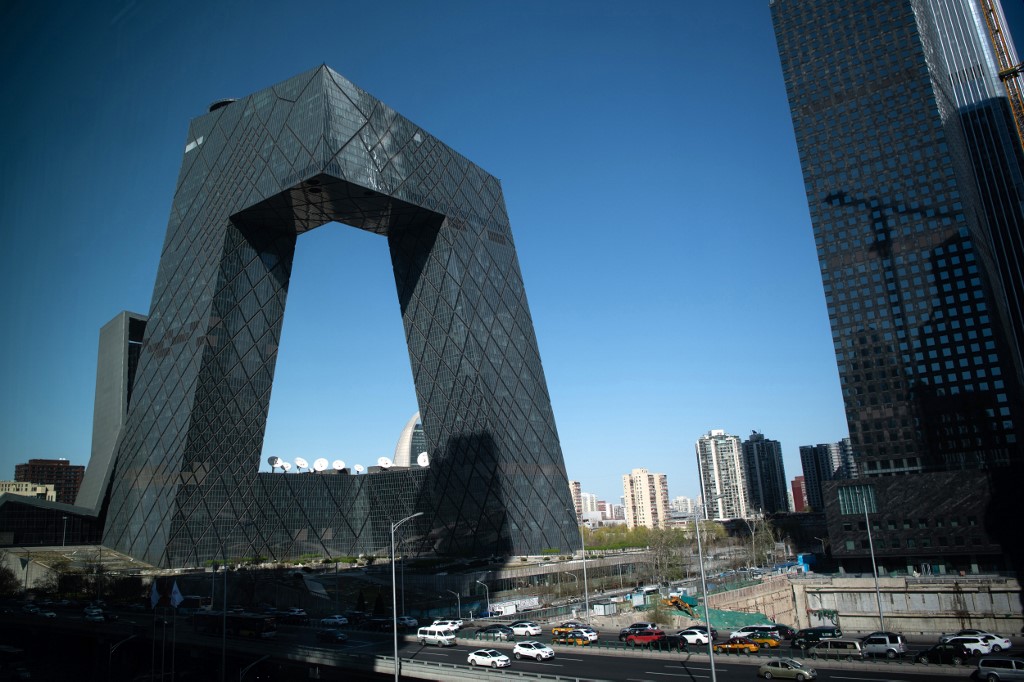The United States on Monday tightened rules on four more Chinese state media organisations, denouncing them as propaganda outlets, renewing a feud with Beijing.
The State Department said it was reclassifying four outlets – China Central Television, the China News Service, the People’s Daily and the Global Times – as foreign missions rather than media outlets in the United States, adding to five others designated in February.
All nine outlets “are effectively controlled by the government of the People’s Republic of China,” State Department spokeswoman Morgan Ortagus said.
The state-run news organisations will be required to report details on their US-based staff and real estate transactions to the State Department. Their reporting will not be restricted, officials said.
“These four entities are not media outlets; they are propaganda outlets,” David Stilwell, the top US diplomat for East Asia, told reporters. He declined to say if the four outlets would be asked to reduce their US-based staff – action taken against the five agencies designated earlier.
The announcement was further evidence that a closed-door meeting last week in Hawaii between Secretary of State Mike Pompeo and senior Chinese official Yang Jiechi did little to ease tensions.
Pompeo said later that he considered China a “rogue” player and said he was “very frank” in expressing concerns to Yang including over Beijing’s response to the coronavirus pandemic and its proposed security law in Hong Kong.
The state news outlets earlier designated as foreign missions were the Xinhua news agency, the China Global Television Network, China Radio International and the US distributors of the People’s Daily and English-language China Daily.
After the outlets were ordered to cut by nearly half the Chinese nationals working for them in the United States, Beijing hit back by expelling US citizens working for three major newspapers – The New York Times, The Wall Street Journal and The Washington Post.
Beijing said at the time it was taking reciprocal action against the “oppression” of its reporters.
Further retaliation?
Some media rights advocates have voiced misgivings about the approach of President Donald Trump’s administration, saying it gave China a pretext to kick out journalists who have fearlessly reported on the coronavirus pandemic and the mass incarceration of Uighurs and other Turkic Muslims.
Trump himself frequently belittles US reporters, describing unfavourable coverage as “fake news,” and a number of journalists said they were roughed up by US police while covering this month’s nationwide protests against racism.
But State Department officials note that US media are free to report critically of the government while Chinese state-run outlets report to the government.
In February, China separately expelled three journalists from The Wall Street Journal after the newspaper ran an opinion piece with a headline that called the country the “sick man of Asia” – a word choice Beijing called racist.
Stilwell, the assistant secretary of state, played down fears that China would expel more US journalists, saying that US actions were “simply an excuse” to crack down on media.
“Trying to tie what we do to defend ourselves to what they choose to do – to kick out the best investigative reporters, especially the ones who speak Chinese – this is all their choice,” he said.
He said that China could benefit from a rigorous media, pointing to the initial efforts to suppress news on the novel coronavirus when it was first detected in Wuhan, as well as concerns about shoddy construction following the 2008 Sichuan earthquake.
AFP
























